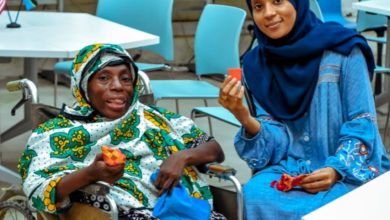Why Nyerere leadership school crucial for country’s development

PWANI: THE Nyerere Leadership School (MJNLS) is not just a tribute, it is a living institution that keeps Mwalimu Nyerere’s values, vision and voice alive, particularly ethical leadership, Pan-African unity, political consciousness, social justice and people-centred development.
It is a crucial platform to educate, inspire, and mobilize future generations to walk the path Mwalimu helped pave.
As the country marks 26th years since the passing of the founding father of the nation, it is important to highlight why a key institution such as the Nyerere Leadership School is crucial for preserving and advancing Mwalimu Julius Nyerere’s legacy for several key reasons Mwalimu Nyerere was a strong proponent of PanAfricanism, African unity and South-South cooperation.
The Nyerere Leadership School serves as a regional hub to promote those ideals by bringing together leaders and cadres from various African liberation movements and ruling parties particularly from Tanzania, South Africa, Angola, Mozambique, Namibia and Zimbabwe (the six parties that co-own the school).
This school also acts as a catalyst to institutionalise Mwalimu’s philosophy of ethical leadership. Nyerere believed in servant leadership, humility, and integrity in public service.
The school trains current and future leaders based on these principles, fostering accountability, patriotism and people-centred governance—values that are often missing in contemporary African politics.
According to the school’s Head Professor Marcellina Chijoriga, the Kibaha based institution also strengthens political education and Cadre development.
Mwalimu championed political education as a tool for empowerment and responsible citizenship.
The school revives this tradition by offering training to political cadres, especially youth and women, instilling ideological clarity and historical consciousness—crucial for sustaining progressive movements in Africa.
This school also preserves historical memory and African liberation history.
The school serves as a living memorial to Nyerere and other African liberation heroes by preserving the history of liberation struggles. It ensures that the new generation understands the sacrifices made to achieve independence and the values those struggles were built upon.
For many scholars, the presence of Mwalimu Nyerere school is important because it supports regional stability and development.
By nurturing a new generation of leaders committed to peace, unity and social justice, the school contributes to political stability and inclusive development in Africa. This is directly aligned with Nyerere’s vision for a self-reliant, united and just continent.
It also extends Mwalimu’s legacy beyond Tanzania. While Nyerere was Tanzania’s founding father, his influence was continental.
The school cements his status as a continental statesman whose legacy belongs not just to Tanzania, but to Africa at large. It ensures his vision remains relevant to contemporary African challenges.
Commenting on the crucial role of such institutions inspired by founding figures like Mwl Nyerere political and administrative expert Mr Hamiduni Maliseli told ‘Daily News’ that the establishment of the Mwalimu Julius Nyerere Leadership School stands as one of the most significant milestones in the ongoing effort to preserve and promote the ideals of Africa’s founding leaders.
He said that the school is not merely an academic institution but a moral and ideological compass designed to nurture a new generation of leaders grounded in the principles that shaped postindependence Africa.
Mr Maliseli said the existence of such a school is essential for ensuring that Nyerere’s values rooted in unity, self-reliance and integrity continue to guide leadership on the continent.
“A nation without ideology cannot move forward. Development is not just about roads, buildings, or industries, it begins with ideas and values that unite people,” he said According to Mr Maliseli, the school embodies the collective wisdom of Africa’s founding fathers who believed that leadership should be a calling rooted in service, not self-interest.
“Institutions like this one are crucial because they are built upon the foundational values of great African leaders. They ensure that our political systems and governance are guided by principles, not personal ambition,” he said.
He added that during the early years of Tanzania’s nation-building, ideology was central to the country’s unity and progress.
ALSO READ: ‘Use Mwalimu Nyerere Leadership School to speed up development’
Citizens and leaders alike were trained to understand and internalise the national philosophy of Socialism and Self-Reliance (Ujamaa na Kujitegemea).
That ideological grounding, he said, was key to shaping discipline, patriotism, and commitment among leaders and citizens.
He warned that today’s African nations are at risk of losing their ideological direction amid global political and economic pressures.
Without a shared national philosophy, development becomes fragmented and reactive rather than visionary.
“We have countries that appear modern on the surface but lack an ideological backbone. When ideology disappears, leadership becomes confused and governance loses its moral compass,” said Mr Maliseli He stressed that schools like the Nyerere Leadership School are necessary to restore that lost compass by providing a structured space for reflection, dialogue, and training in ethics, governance, and African thought.
“The school reminds us that every nation must have a clear set of beliefs and guiding values. Leaders should not emerge by accident rather they should be prepared, trained, and shaped by their nation’s ideology,” he said.
Mr Maliseli further noted that Mwalimu Nyerere’s teachings were never about the past but they remain relevant to the present and future.
His vision for unity, justice, and self-reliance offers timeless lessons in leadership and nation-building.
“Nyerere believed that leadership begins with the mind and the heart. You cannot lead others if you have no vision or discipline. That’s why ideological education is essential as it creates leaders who think, reflect and serve,” he said.
He said that ideological training should not be limited to members of political parties but should be open to all Tanzanians, especially young people aspiring to serve in leadership positions.
“We must bring everyone on board including students, civil servants, politicians, and community leaders so that all understand the same national philosophy and move in one direction. That’s how Mwalimu’s legacy can truly live on,” he said.
Through institutions like the Nyerere Leadership School, his teachings continue to shape leaders who believe that service to the people is the highest form of leadership.
“This school is not just a monument to Mwalimu’s memory. It is a living institution that keeps his ideas alive and that is how true legacies are sustained,” he said Located at Kibaha Coast Region, the school stands as a proud testament to the enduring solidarity among Africa’s historic liberation movements.
It was jointly established by the Former Liberation Movements of Southern Africa including the Chama Cha Mapinduzi (CCM), African National Congress (ANC), Mozambique Liberation Front (FRELIMO), Popular Movement for the Liberation of Angola (MPLA), South West Africa People’s Organisation (SWAPO), and Zimbabwe African National Union- Patriotic Front (ZANU-PF).
MJNLS, embodies their shared commitment to safeguarding the ideals of freedom, unity and self-determination.
The decision to establish a regional centre for leadership was made in Harare, where the six sister parties resolved to build an apex party school in Tanzania, a country whose founding leader, Mwalimu Julius Kambarage Nyerere, is a symbol of Pan-African leadership, ethical governance, and ideological clarity.
Officially inaugurated in February 2022, the Mwalimu Julius Nyerere Leadership School envisions becoming an international centre of excellence for nationalist and Pan-African leadership.
Its mission is to equip Pan-African leaders to deliver impactful, sustainable political, socio-economic and cultural development The school is dedicated to nurturing leaders of integrity who are grounded in Pan-African ideals while remaining responsive to contemporary global challenges.





